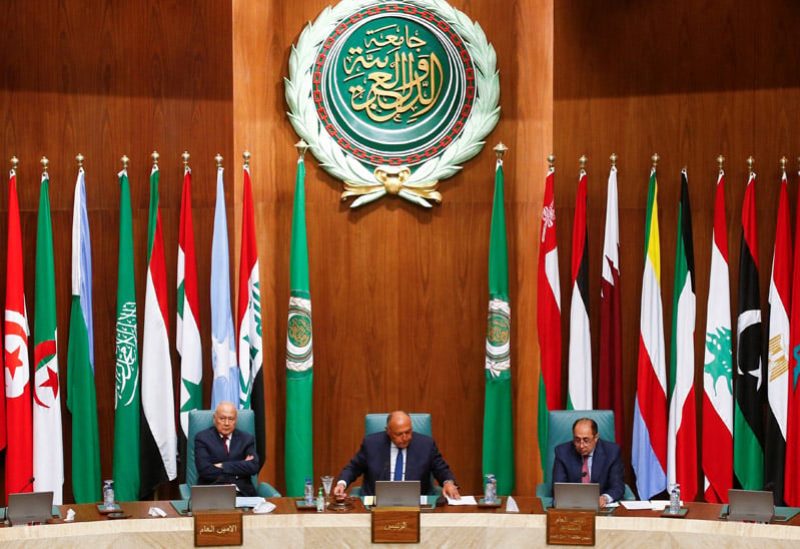
Arab League (Reuters)
According to Arab diplomatic sources, the Arab summit that will be held in Saudi Arabia on May 19th is critical this time, as its decisions will confirm Arab constants while opening up to the new climate established by relations with both Iran and Syria. Especially since the Arab and Gulf challenge, specifically, is to implement their orientations in re-enhancing their role in solving the problems of the Arab region, and not leaving the matter only to the West.
Sources reveal that Oman’s statement issued on May 1st regarding Syria will be adopted by the summit, and this is what is being worked on among Arab countries and coordinated accordingly.
Syria’s return to the Arab League is considered the beginning of the process where the Arab opinion that says that its mere readiness to implement the conditions for its return has prevailed. After there was a second opinion, which says that it should start implementing the conditions and then return.
Facilities have been provided to Syria for its return, but not without accountability, and it must comply with the Arab conditions starting from redrawing its policy with Iran, all the way to the return of Syrian refugees to their homeland. And the implementation of a political process in power.
However, the sources say that it is too early to judge the extent to which the Arab role will reach towards Iran and Syria. If the Saudi-Iranian agreement is strategic and carries the elements of continuity for both parties, stability will prevail in the Gulf region.
As for the Middle East, calming and solutions to the files will be achieved in the framework of step-by-step, especially regarding Syria, Lebanon, and Iraq, with the indication that Arab consensus with Syria comes in the context of the broader agreement, i.e., with Iran.
But what is striking is that Washington will not normalize relations with Bashar al-Assad regime, and sanctions will remain fully in effect. It is fully committed to the Caesar Act sanctions and consulting its partners not to risk being subject to sanctions.
This stance is the focus of Arab communications preceding the summit, but informed diplomatic sources have clarified, that there is no risk of US sanctions on Arabs due to lifting the ban on Syria and its regime.
The implicit position of the administration is supportive of communication with Syria, but subject to conditions, including foremost, the severing of its ties with Iran and ending the smuggling and trade of Captagon. This stance is opposed by the hardline one of Congress towards Syria, but it will not lead to a change in the administration’s position, despite the pressure it exerts through the demand for the implementation of the “Caesar Act” sanctions.
To this end, many members of Congress have proposed laws that include imposing sanctions on those dealing with the Syrian regime, which killed its people, displaced its children, destroyed its country, and changed its human and social features.
In essence, Washington does not impose sanctions on those who engage in dialogue with the regime, but on those who engage in commercial contracts, reconstruction, and economic exchange with it.